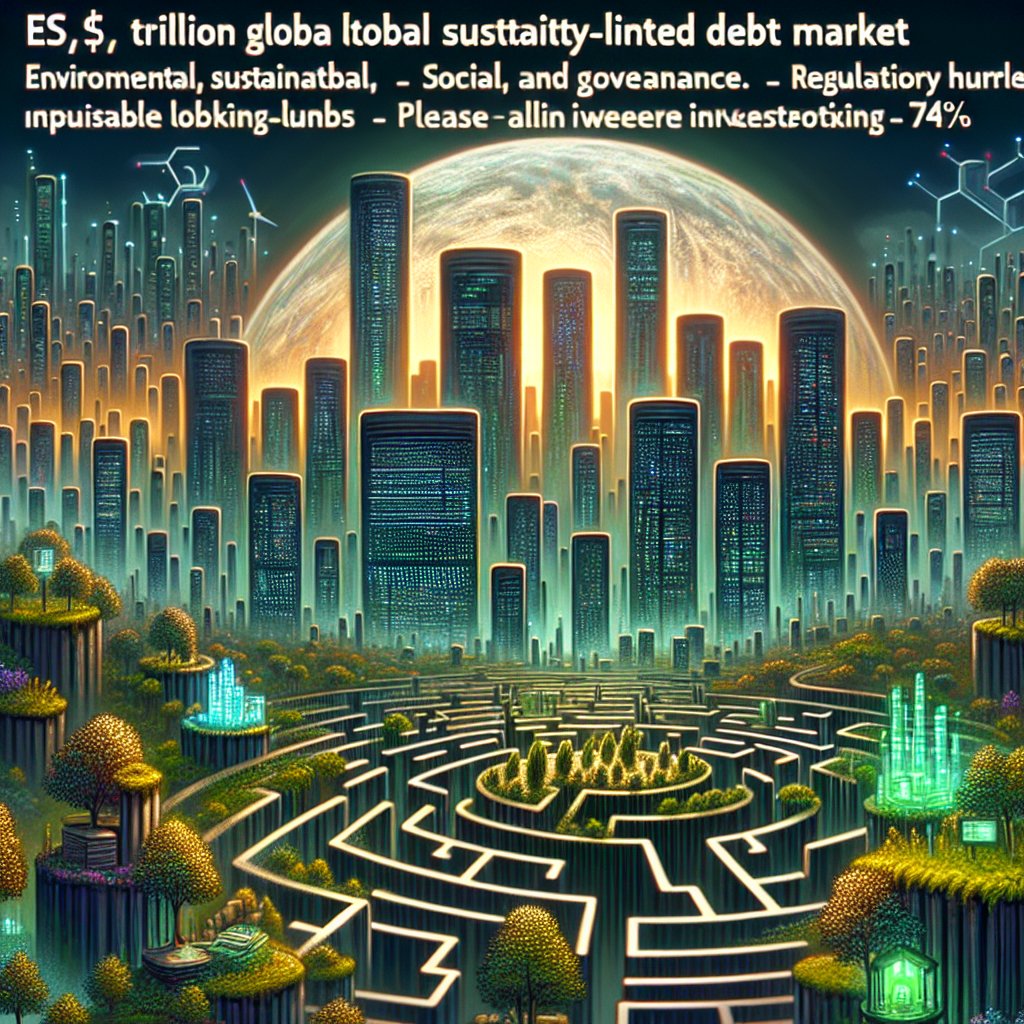Image created by AI
The Exuberant Decline of the ESG Debt Market: A Hard Reality Check
Amid the burgeoning environmental, social, and governance (ESG) movement, a formidable challenge has risen within the financial sector. The once-thriving ESG debt market, specifically the realm of sustainability-linked loans (SLLs), is witnessing a marked exodus of corporate clients. Bankers and legal experts familiar with the inner workings of this niche are attributing the mass retreat to a concoction of increased regulatory demands, diminishing economic incentives, and the looming specter of greenwashing allegations.
The SLL market, which BloombergNEF appraised at an imposing $1.5 trillion, only trails behind the green bonds market in size and influence. With rules being relatively lax, stakeholders had the autonomy to devise their own benchmarks for what constituted a sustainability-linked loan. However, recent years have precipitated a shift, as market watchdogs began erecting a robust framework around ESG labels, prompting a reassessment among participants. Data from Bloomberg illustrates this turning tide, with SLLs issuance plummeting by 56% to $203 billion just last year.
The decline in sustainability-linked funding solutions is stark when measured against the concurrent resurgence of green loans in 2024. Specifically, SLL issuance has plunged further, by 74% year-to-date. Rachel Richardson, from Macfarlanes law firm in London, identified the present period as a crux for decision-makers. The critical juncture concerns continuing the pursuit of funding via SLLs—which were nascent and under-defined when many current deals were brokered—versus navigating the evolved, more stringent marketplace of today.
Adding to these complexities, the European Union's Corporate Sustainability Reporting Directive (CSRD) mandates exhaustive documentation to substantiate any ESG claims, effectively throwing cold water on the allure of SLLs. In sync with this, the Financial Conduct Authority in the UK issued a stark caution society against the potential greenwashing within the SLL domain.
This caution is evident in the shift of capital movement within green companies—a BloombergNEF report remarked on a preference for these entities to secure conventional loans over green-tagged instruments, despite holding robust environmental credentials.
The SLL market's attractiveness further wanes as the 'greenium'—a previously enjoyed lower borrowing cost compared to conventional debt—dissipates, largely offset by the price associated with yearly audits and third-party assessments. Consequently, even green-credentialed firms like Siemens Energy AG comprise a dwindling client base within the SLL landscape. Conversely, more borrowers are veering to refinance via traditional credit facilities, devoid of any sustainability labels.
Adding another layer to the complex situation is the phenomenon of borrowers reneging on 'rendezvous clauses'—agreements that would convert regular loans to SLLs upon achieving feasibly sustainability targets. The prevalence and impact of this trend are yet to be fully understood but are indicative of a broader change in mentality and market behavior.
The SLL was birthed some seven years ago during the ESG label's heyday, and for a time, it rode the booming capital market waves with minimal regulatory checks. However, the aftermath of the pandemic triggered a cascade of economic shifts—accelerated inflation and erupting energy needs exacerbated by geopolitical tensions—which caused a palpable reevaluation of the market. This turning point led to a reexamination of past SLL agreements, many of which now appear comparatively lax against current ESG standards.
Ultimately, the sustainability-linked loan market is experiencing a period of sober reflection, with stakeholders acutely feeling the pressure to redefine what constitutes a 'sustainable' investment in a world with a heightened sense of social and environmental responsibility.










